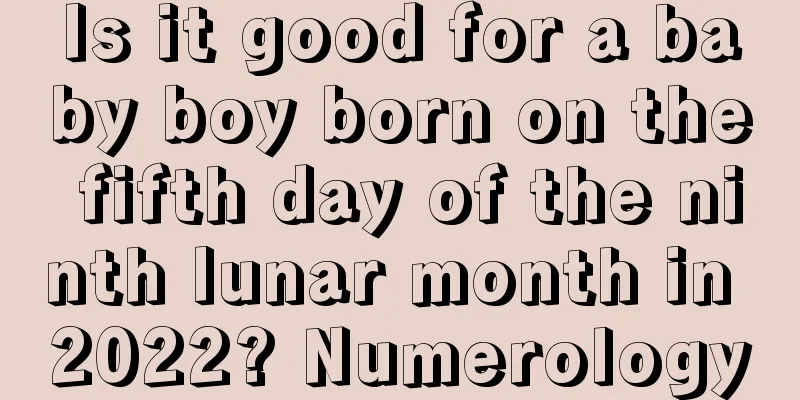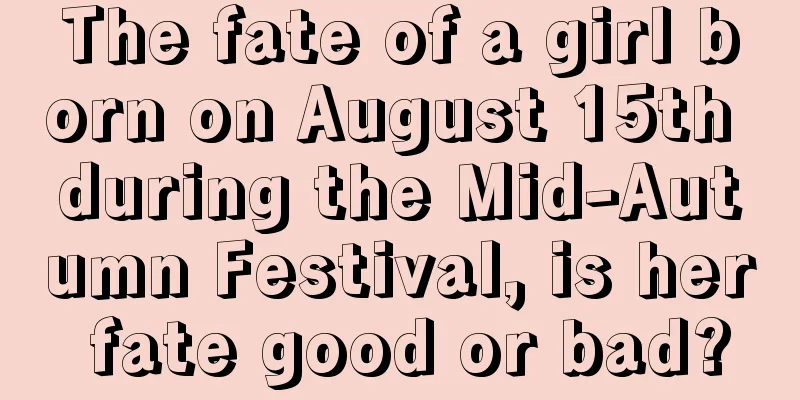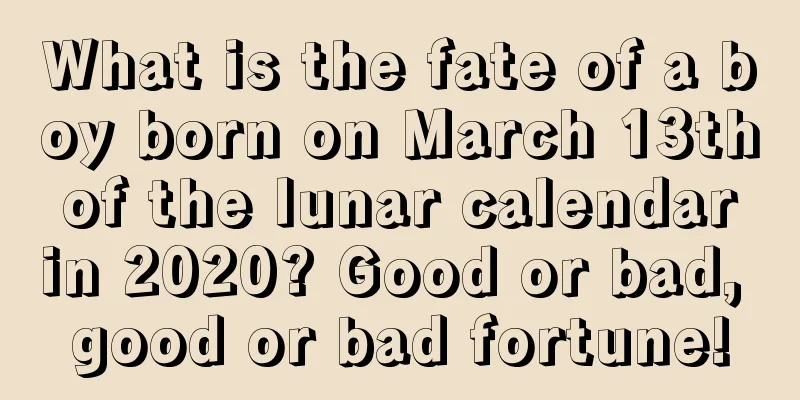What are the customs on the third day of the Lunar New Year?

Introduction: The third day of the Lunar New Year is also known as the Sheep Day. What are the customs on this day? New Year, New Atmosphere. If you want to know more about the Lunar New Year, please pay attention to the 2018 Spring Festival special article exclusively presented to you by Fortune Teller.com!What are the customs on the third day of the Lunar New Year?The third day of the first lunar month is also known as Xiaonianchao or Chigou Day. As an ancient traditional festival of the Han nationality, it is said that on this day Nuwa created the sheep.According to Han Chinese folklore, the third night of the Chinese New Year is the day when mice get married, so most families turn off the lights and go to bed early to avoid disturbing the mice (some say that turning off the lights early at night is to prevent the mice from seeing and getting married, thus reducing their reproduction rate). They also sprinkle some rice grains and cakes in the corners of the house for the mice to eat, which is called "mouse money sharing", which means sharing the year's harvest with the mice. In the old days, on the third day of the first lunar month, pine and cypress branches from the New Year and the door gods and paper hung during the festivals would be burned together to indicate that the new year had passed and it was time to start a new life. There is a proverb that goes "After burning the door god paper, you will have trouble finding your own way." In Hong Kong, people generally do not pay New Year’s greetings on the third day of the Lunar New Year, because the third day of the first lunar month is “Red Mouth”, also known as “Red Dog Day”. It is said that Chigou is the god of anger and encountering him is likely to lead to quarrels. Therefore, the older generation of Hong Kong's New Territories indigenous people stay at home on this day to avoid encountering evil spirits. The third day of the first lunar month, the birthday of millet , is commonly known as the "birthday of millet" and has been passed down among the people. On this day, every household will pray for a good harvest and abstain from eating rice, otherwise it will affect the grain harvest in the coming year. However, this custom has long been outdated. With the progress of the times, it is rare for people to get together to celebrate the Spring Festival, and this custom has faded a lot. The third day of the first lunar month is the day when Nuwa created sheep, so it is called "Sheep Day". On this day, people cannot kill sheep. If the weather is good, it means that the sheep will be well raised in the year and the sheep farmers will have a good harvest. Sending Off the Kitchen God in Gansu In most rural areas of the northwest, the Kitchen God is sent off on the third day of the Lunar New Year. From the Little New Year, which is the 23rd day of the twelfth lunar month, the Kitchen God is invited back and posted in the middle of the stove, and offerings are placed there. Incense is burned three times a day to offer sacrifices, which means blessing the family with a good harvest in the coming year, and the whole family with enough food and clothing, and surplus every year. On the third day of the first lunar month, the Kitchen God must be sent away. Summary: The above is [What are the customs on the third day of the Lunar New Year? 】, I hope the entire content can be helpful to everyone! |
<<: What should we eat and what should we not eat on the first day of the Lunar New Year in 2018?
>>: What day is the 18th day of the first lunar month in 2018?
Recommend
The fifth day of the tenth lunar month in 2017 is a good day, is it?
Many people like to arrange happy events in winte...
Which zodiac signs will have good fortune after the beginning of summer in 2022? These zodiac signs are about to have their luck turned!
Different zodiac signs have different fortunes in ...
What is the fate of a tiger born in the twelfth month? What should a tiger wear?
People born in the year of the tiger have stubborn...
How many days is the May Day statutory holiday? What’s the most cost-effective way to take the May Day holiday in 2022?
As one of the legal holidays, how the May Day holi...
How is the twelfth day of the seventh lunar month in 2021? Can we get married?
There are certain considerations when choosing the...
Is July 5, the day before the Lesser Heat in 2020, a good day? Has the plum blossom season ended on this day?
Introduction: Every day has its good and bad luck,...
Is it possible to get married on the 12th day of the sixth lunar month in 2019?
Marriage refers to the voluntary union of men and...
Is the 17th day of the twelfth lunar month in 2019 an auspicious day and suitable for praying and burning incense?
There are auspicious and inauspicious days in the ...
Is the fate of a boy born on April 28th of the lunar calendar in 2021 good?
April is the beginning of summer, when golden whea...
Analysis of the fate of boys born on the second day of the second lunar month in 2021 (Dragon Raising its Head)
The fate of a boy is related to the time he was bo...
Is the 21st day of the first lunar month in 2018 suitable for offering sacrifices? What are the things to note when performing sacrifices?
In China's funeral and sacrificial activities,...
Will the Civil Affairs Bureau be open on the second day of February in 2022? Can I register for a marriage certificate?
Speaking of getting a marriage certificate, I beli...
Is the ninth day of the seventh lunar month in 2022 an auspicious day for funerals?
Is the ninth day of the seventh lunar month in 202...
What are the customs and traditions of Ghost Festival in my country? Why is Zhongyuan Festival called Ghost Festival?
As a cultural festival that has been passed down f...
What are the auspicious days for funerals in the first month of the lunar calendar in 2021?
What are the auspicious days for funerals in the f...









